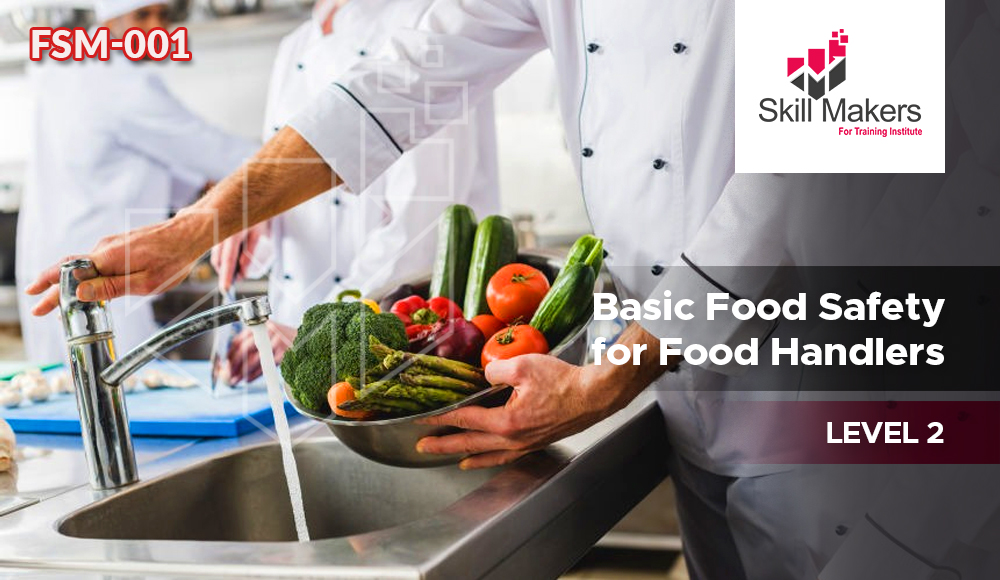-
Course Code
FSM-001

Basic Food Safety for Food Handlers - Level 2
- This course covers the Prerequisite Programs to HACCP; basically the foundation programs that must be in place prior to implementing a HACCP-based program. The qualification covers all the basic hygiene requirements for food handlers in catering, and thoroughly addresses the Flow of Food from purchasing to serving. The syllabus was developed with WHO & Codex requirements as its main references.
Learning Outcomes
- Understand the significance of food safety and foodborne illnesses, it’s causes and how it makes people sick
- Understand their role as food handlers in identifying high-risk or low-risk food, be aware of the dangers of high-risk food and how to handle it
- Identify the different kinds of food hazards, how it affects the health and how to prevent and avoid food hazards
- Recognize the concept of the Temperature Danger Zone (TDZ), how to avoid entering the TDZ and how to handle food that enters TDZ
- Recognize the importance of personal hygiene in making and keeping food safe, from observing proper hygiene in preparing food to practicing proper ways of having a clean kitchen and equipment for food safety
- Differentiate between cleaning and sanitizing and how to do both in the kitchen.
- Familiarize themselves with the kinds of pests that can contaminate food and how to get rid of them.
- Be knowledgeable in the control measures needed in running the kitchen
- Have the ability to use Personal Protective Equipment (PPE)
- Understand the role of a Food Safety Compliance Officer and grasp the significance of training in food safety
- Be familiarized with the concept of the flow of food and how to make and keep the food safe in every step of the flow of food
- Be knowledgeable with the food safety laws and regulations and be able to comply with it
- Get acquainted with the concept of HACCP as the next step in basic food safety
After completing this course, the participants should be able to:
Course Contents
- Introduction to Food Safety
- Food Hazards
- Illness from Food
- High-Risk Food
- Time and Temperature Control
- Personal Hygiene
- Food Safety Training
- Premises and Equipment
- Cleaning and Sanitizing
- Pest Control
- Staying Safe in the Kitchen
- The Flow of Food
- Introduction to HACCP
- Food Safety Laws & Regulations
Our Methodology
- Make coaching and monitoring innovative and using modern
- Media training also using on the go training by using interactive means and focusing on
- The exercises, practical applications and real situations study
- Live delivery method, instructor-led training
- Experienced consultant, trainers, and professional
- Qualified trainer with high-level experience
Attendance Reports
- Send daily attendance reports to training departments
- Send full attendance report to training dep. by the end of the course
- Attend 100 % from the course days also provide daily
- Issue attendance certificate for participant who attend minimum 80% from the course duration
Pre/Post Reports
- Pre- assessment before starting training
- Post assessment after finishing training
- Full report for the difference between Pre-& Post assessment
Who Should Attend
- All Food Handlers, waiters and chefs;
- Anyone working in a catering or food service setting;
- Food Business Operators (FBOs);
- Food and beverage Managers and Supervisors;
- Suppliers of food business establishments;
- Food delivery personnel;
- Food Auditors and Inspectors;
- Food Safety Practitioners;
- Health and Safety Officers;
- Students of culinary, hospitality management, food science and other food related courses; and
- Anyone interested in practicing and gaining knowledge on food safety
